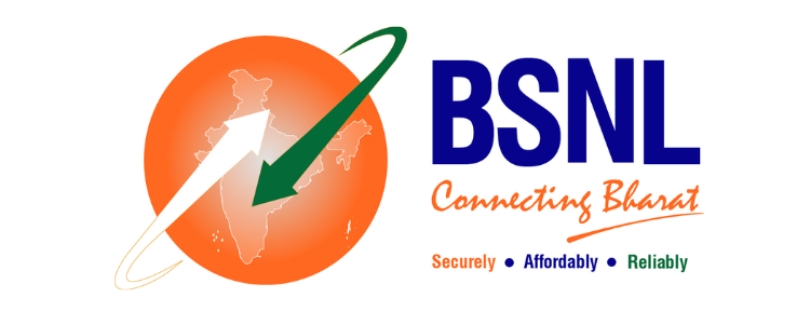
Roaming bill shock is the worst souvenir
Traveling is one of life’s greatest joys, offering a chance to explore new cultures, relax, and create lasting memories. However, amidst the excitement, there’s a potential spoiler waiting to dampen the post-vacation glow: bill shock. Bill shock, the unpleasant surprise of unexpectedly high charges on your bills after a trip, can turn what should be delightful souvenirs into financial burdens.
This article aims to guide travelers on how to navigate and prevent bill shock, ensuring that the only souvenirs you bring home are the ones you intentionally chose.
What is Bill Shock?
Bill shock refers to the shock and distress caused by receiving bills that are much higher than expected, often due to hidden fees, unfamiliar pricing structures, or simply an oversight in managing expenses. It’s a common phenomenon in various sectors, but it’s especially prevalent in the context of travel, where international roaming charges, hotel fees, and other unexpected costs can quickly accumulate.
Travel and Roaming Expenses: An Inevitable Duo
Planning a budget for your travels is essential, yet many overlook the significance of accounting for hidden costs. While the expenses of flights, accommodations, and activities are often factored in, roaming charges can lurk in the shadows. These sneaky fees for calls, texts, and especially data usage have the potential to derail an otherwise well-planned budget. Understanding the nature of roaming expenses makes them an unavoidable element of responsible travel budgeting.
Why Roaming Bill Shock Happens
- Hidden Fees: Roaming charges often involve a complex web of fees per minute of call time, per text, and, most significantly, per megabyte of data. These can be shockingly high and hard to understand.
- Accidental Usage: Your phone could be secretly working in the background, downloading updates or syncing data, even when you think you’re not using it.
- Unclear Coverage: It can be confusing to understand which countries your plan covers at your standard rates, and when the expensive roaming charges kick in.

How Mobile Phones Transform Travel
Mobile phones have become essential travel companions. Here are the important ways they improve your travel experience:
Before Your Trip:
- Planning and Research: Apps like Tripadvisor, Google Travel, and countless blogs provide detailed information about destinations, attractions, accommodations, and travel logistics.
- Booking: You can book everything from flights and hotels to activities and rental cars right from your phone.
- Packing Assistance: Apps help you create checklists and pack efficiently, so you don’t forget anything important.
During Your Trip
- Navigation: Google Maps and other mapping apps are lifesavers, especially when walking, using public transportation, or driving in unfamiliar places.
- Translation: Apps like Google Translate can break down language barriers, helping you read menus, signs, and communicate with locals.
- Currency Conversion: Don’t get ripped off – easily convert prices with currency apps to make sure you’re getting a fair deal.
- Communication: Stay in touch with friends and family back home through messaging apps, video calls, and social media.
- Photography: Decent cameras on modern smartphones make snapping memories and sharing them a breeze.
Important Considerations
- Roaming Charges: Be aware of your carrier’s international roaming fees to avoid bill shock (see previous discussion).
- Battery Life: Travel is demanding on your phone’s battery. Bring a portable charger or battery case.
- Security: Protect your phone from theft and keep data secure with a passcode and by avoiding unsecured public Wi-Fi networks where possible.
Enjoy Your Travels! With its power and convenience, your mobile phone enables hassle-free and enriched travel experiences.
Common Roaming Bill Shock Reasons While Traveling
Traveling should be a time to relax and explore, but the dreaded “roaming bill shock” can turn a dream vacation into a financial nightmare. Understanding the common culprits behind these astronomical charges is the first step to protecting yourself. Unexpected roaming fees often stem from high per-minute call rates, exorbitant text message costs, and worst of all, data usage charges. Even with your phone seemingly idle, apps refreshing in the background or automatic updates can silently rack up megabytes of data, leading to a shockingly high bill when you return home.
Here’s a breakdown of the most common reasons for roaming bill shock:
- Accidental Data Usage: Even when you think you’re not using your phone, background app refreshes, automatic updates, and location tracking can drain data quietly. This is the biggest budget-buster.
- High Per-Minute Call Costs: Roaming calls can be incredibly expensive, both for making and receiving them.
- Expensive Text Messages: Similar to calls, roaming text messages (SMS) can have surprisingly high per-message charges.
- Unclear Coverage Areas: It can be confusing to know exactly when your domestic plan’s coverage ends and the higher roaming charges kick in. This can lead to unexpected charges in border areas or on cruises.
- Promotional Rate Expiration: Sometimes promotional domestic rates expire without you realizing, and roaming usage gets charged at full price.

Benefit from global mobile internet connectivity and up to 90% savings compared to roaming charges with your main provider.
Preventing Bill Shock Before You Go
Prevention is key to avoiding bill shock. A little pre-trip planning goes a long way to avoid post-vacation financial woes. Here’s how to protect yourself:
- Contact Your Carrier: The most important step! Discuss your travel plans with your carrier to understand their roaming policies, applicable charges, and if they have any travel add-ons.
- Check Your Settings: Disable data roaming if you’re unsure how to use it safely. Turn off background data for apps you won’t need while traveling.
- Utilize Wi-Fi: Whenever possible, rely on Wi-Fi for communication, app usage, and downloading data-heavy content like maps or streaming media before you leave.
- Alertify Solutions: Invest in an eSIM or pre-purchase a local SIM card for your destination country. Services covering over 200 countries make this easier to arrange before your trip, avoiding the hassle and potentially higher costs of buying a SIM upon arrival.
- Travel Data Packs: Your carrier may offer short-term data packages specifically designed for travelers. Investigate these to see if they are a cost-effective option.
Remember: Don’t let fear of roaming charges prevent you from having the connected travel experience you deserve!
Final Thoughts
Navigating the potential pitfalls of travel expenses requires awareness, planning, and smart strategies. By understanding and applying the insights shared in this article, travelers can enjoy their adventures without the dreaded bill shock, ensuring that their souvenirs are only those of joy and discovery.










